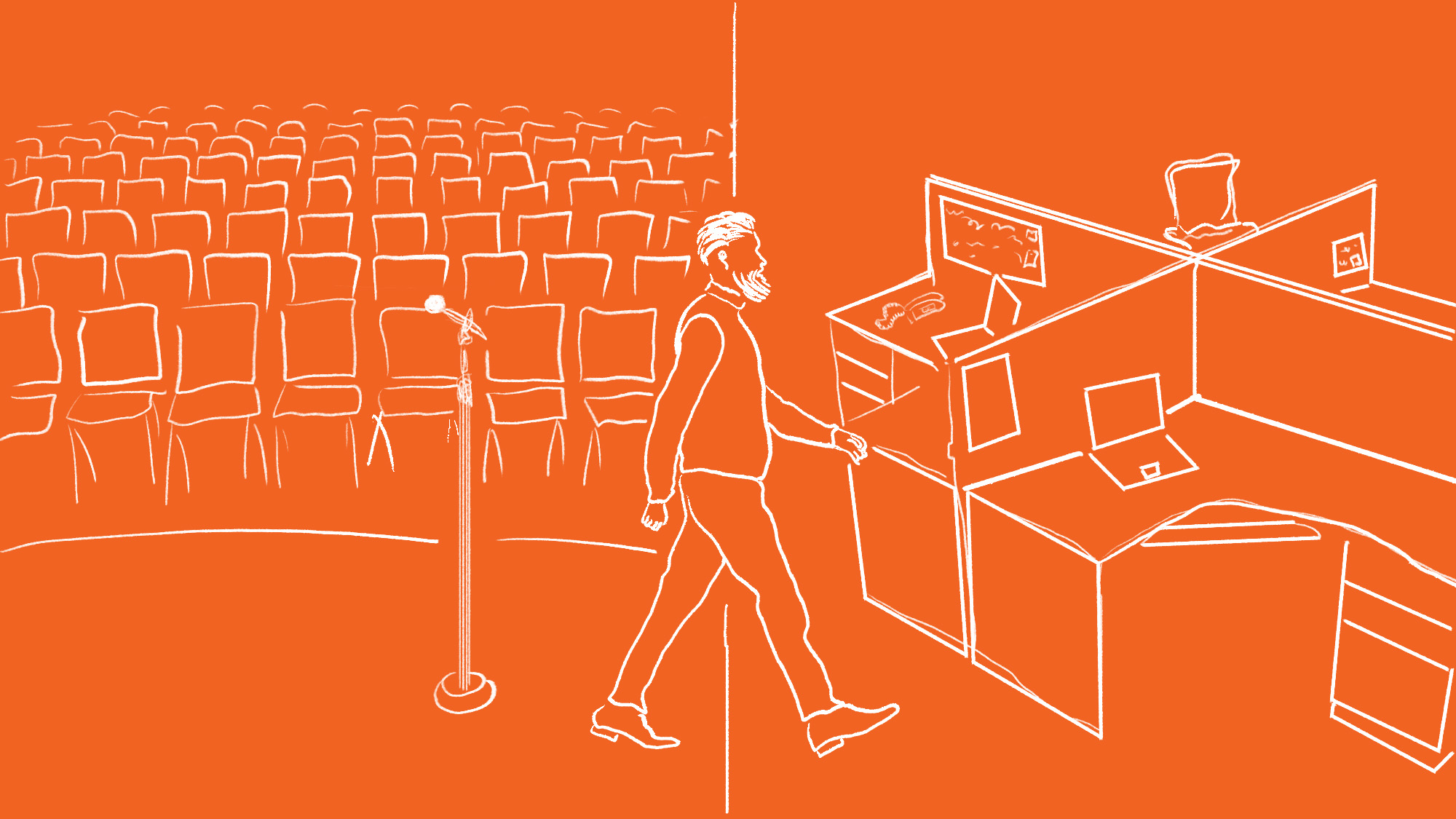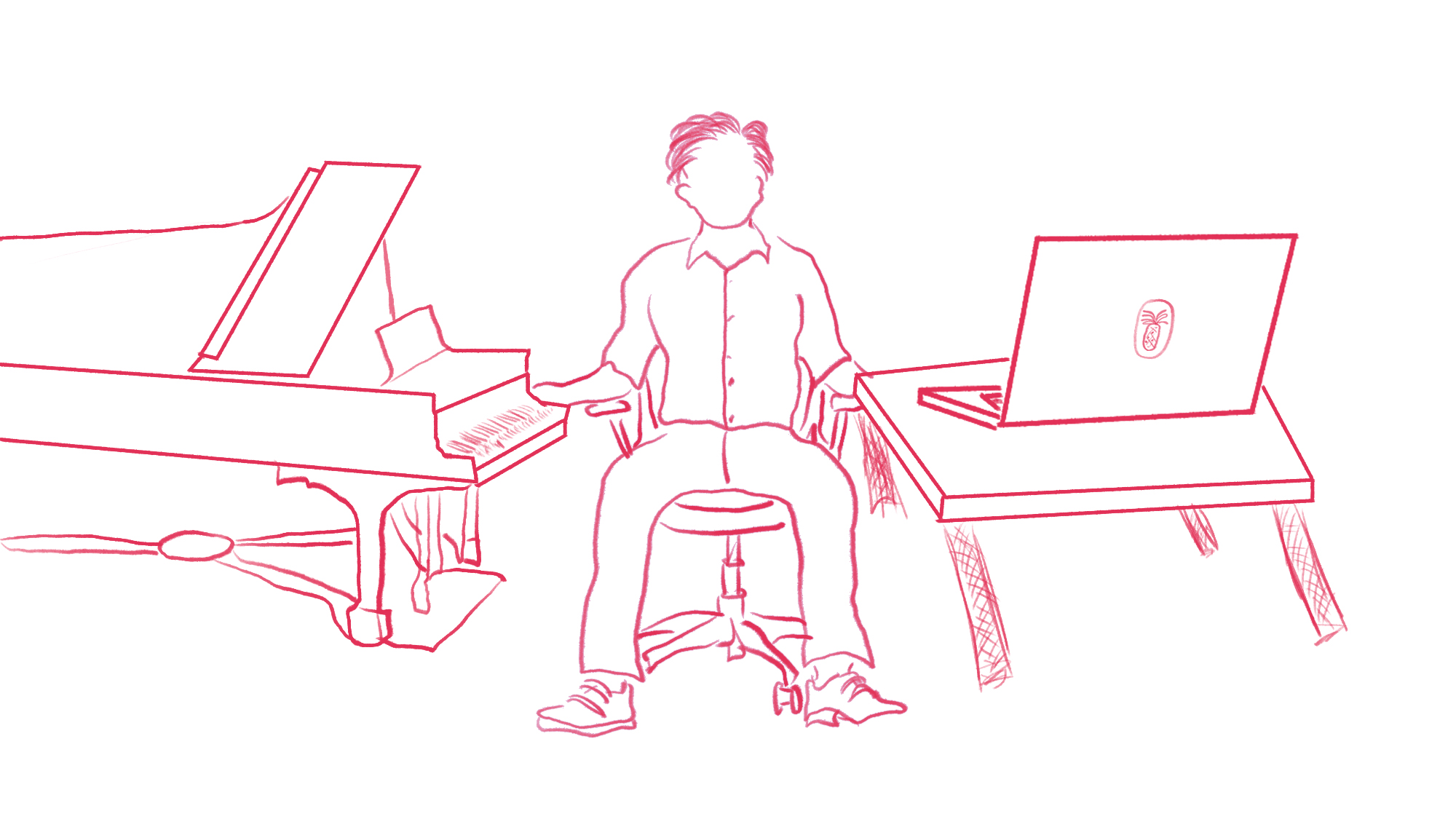Today is the best time to learn a skill
1 November 2021 — Written by Arpit Chhikara

Is it possible to have a career in both technology and music? Very much so. Talking about the multidisciplinary approach to learning is one thing and doing it for real is a different story altogether. Today we’ll explore with Naveen Santhanam the connection between technology and music. He is a facilitator for music at HLC Beyond 8 and also the Chief Technical Officer. Or as he likes to say, Tech Maestro and a Composer. From strings to codes, he has perfected two disciplines proving that at the intersection of two subjects lies a deeper sense of knowledge than either one of them. Time to chew on his nuggets of wisdom.
Today’s the perfect time to start learning
The common misconception among beginners is that to learn any art or skill you have to start young. In his best selling book Range, David Epstein describes two paths to excellence. The first one is to start young and aim to specialize in the depth of knowledge. The second one is to sample from your various interests and aim for a breadth of knowledge. I started my journey into music with the piano when I was in grade 12, recalls Naveen.
My initial years were about exposing myself to what all exists in my domain. But the fruits of my knowledge came in later when I went from the consumption mode to the creation mode. Neuroplasticity is the quality of the brain to change the neural wiring when subjected to new information. The good news is that neuroplasticity does not depend on age, which means that the best time to learn is today. Natural talent is surely a factor that helps one learn but don’t underestimate the power of hard work and deliberate practice in skill-building.
Take feedback to improve fast
Some people aim for perfection. You might have someone like that in your friend circle or in the office. A perfectionist will continue to work on something until they are satisfied. Now, it is always good to be your best. But in the case of coding, says Naveen, it is important to constantly seek to test what you’re creating and improve with feedback. In the case of coding, one cannot write a dozen pages without course-correcting the tiny errors. My knowledge from tech dictates my outlook towards music as well. I strive for the best but my main goal is to create something new every day. It might be a 10 or 15-sec loop and not of very high quality. But what matters is that I work with discipline and let go of perfectionism. The main concern I have is deliberate practice.
Make smart use of deliberate practice
The 10,000-hour rule by K. Anders Ericsson and made famous by Malcolm Gladwell is a commonly agreed-upon fact. It simply means that to become a master in your field you have to, as per the 10,000-hour rule, ensure deliberate practice where you pay full attention to the task at hand. Now, I certainly believe in this but if you have a limit in your mind that I’ll create good music or code after specific hours of practice, it might run into a mental roadblock.

I can teach guitar to someone who understands permutations and combinations. If you’re a kinesthetic learner, like my 5-year-old son, you’ll learn instruments with better ease. But one can learn to work with their heart, head and hands because it is a learnable skill as much as it is a natural talent. In short, my advice is to start with two fields that inspire you and try to bring them together at an intersection. In no time, you’ll be able to draw insights that otherwise would have seen impossible. More importantly, your work will have an impact on those who consume your creation.
Aim to create, not just consume
For every art and skill, we have creators and consumers. to make something useful for the consumer, you have to mould it in a useful manner. As a musician, I create music to please myself and challenge my creative energy. But a stage musician will not do so. They will have different creations in the arsenal to showcase to different audiences. To get better at creating, whether music or code, for yourself and for others, always be on the lookout for new and inspiring ideas. Read books on the topic, hire an experienced teacher or make use of YouTube. In the end, you’ll have to work hard and push yourself to the limits. There’s no substitute for that. Remember, the path to being a master doesn’t have to be complicated even though it might take longer to achieve what you aspire for.
The human brain is quite responsive to new stimuli. It is the idea behind the principle of neuroplasticity. Our brain changes itself in response to the kind of inputs we give to it. So, don’t let your age or lack of initial expertise stop you. Start small with whatever you have and try to connect two skills or subjects to see how they feed into each other. Over time, you may add a new skill to the duo. Make sure to track what you do because deliberate practice is about measurement - qualitative or quantitative or both. If Naveen’s journey has given you enough food for thought and inspiration to act, do share your experience with us at contact@beyond8.in. We have similar strategies on multidisciplinary learning and skill-building on our Instagram. Do follow us there for exciting ideas and never let the joy of learning wither away.